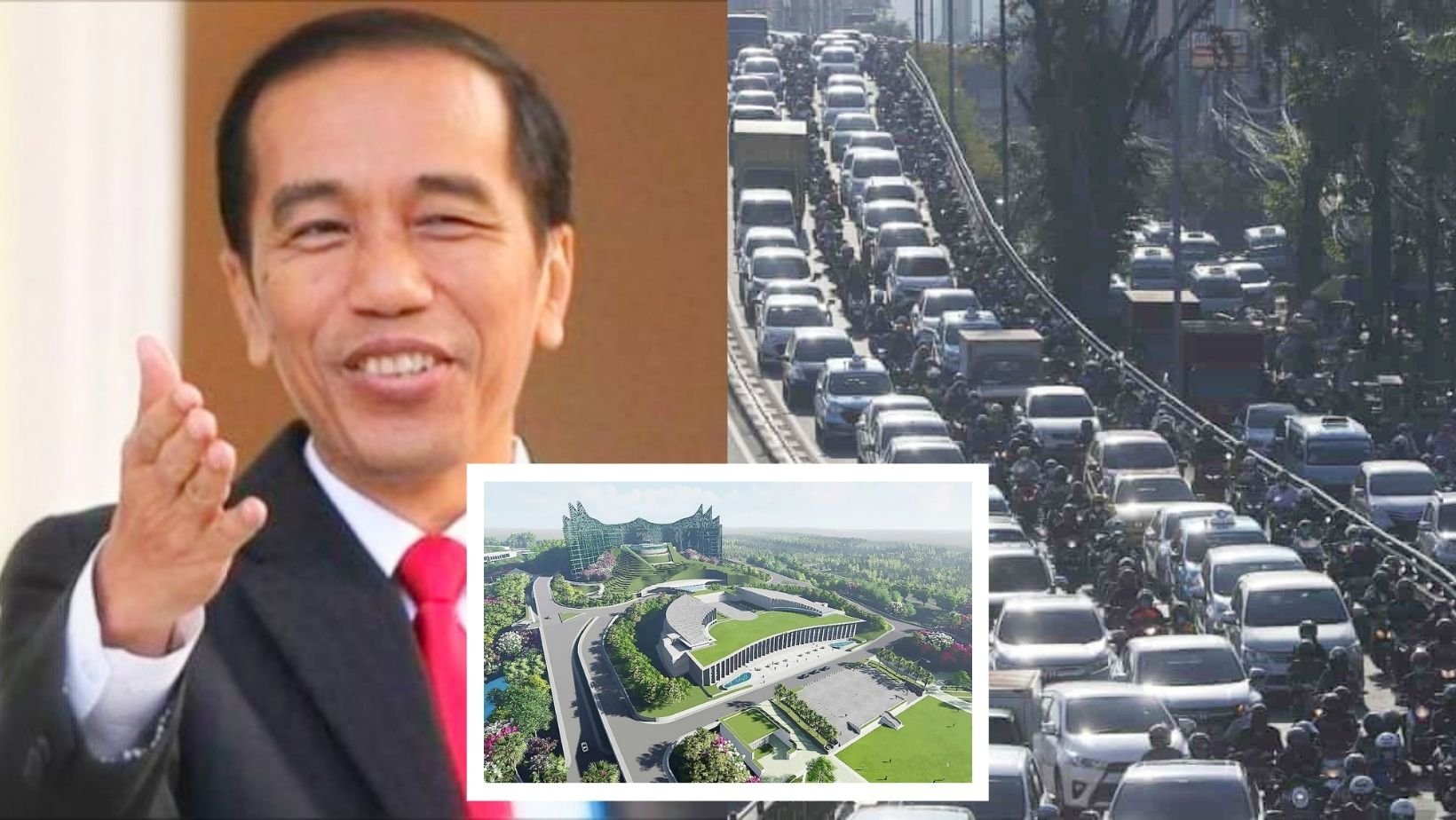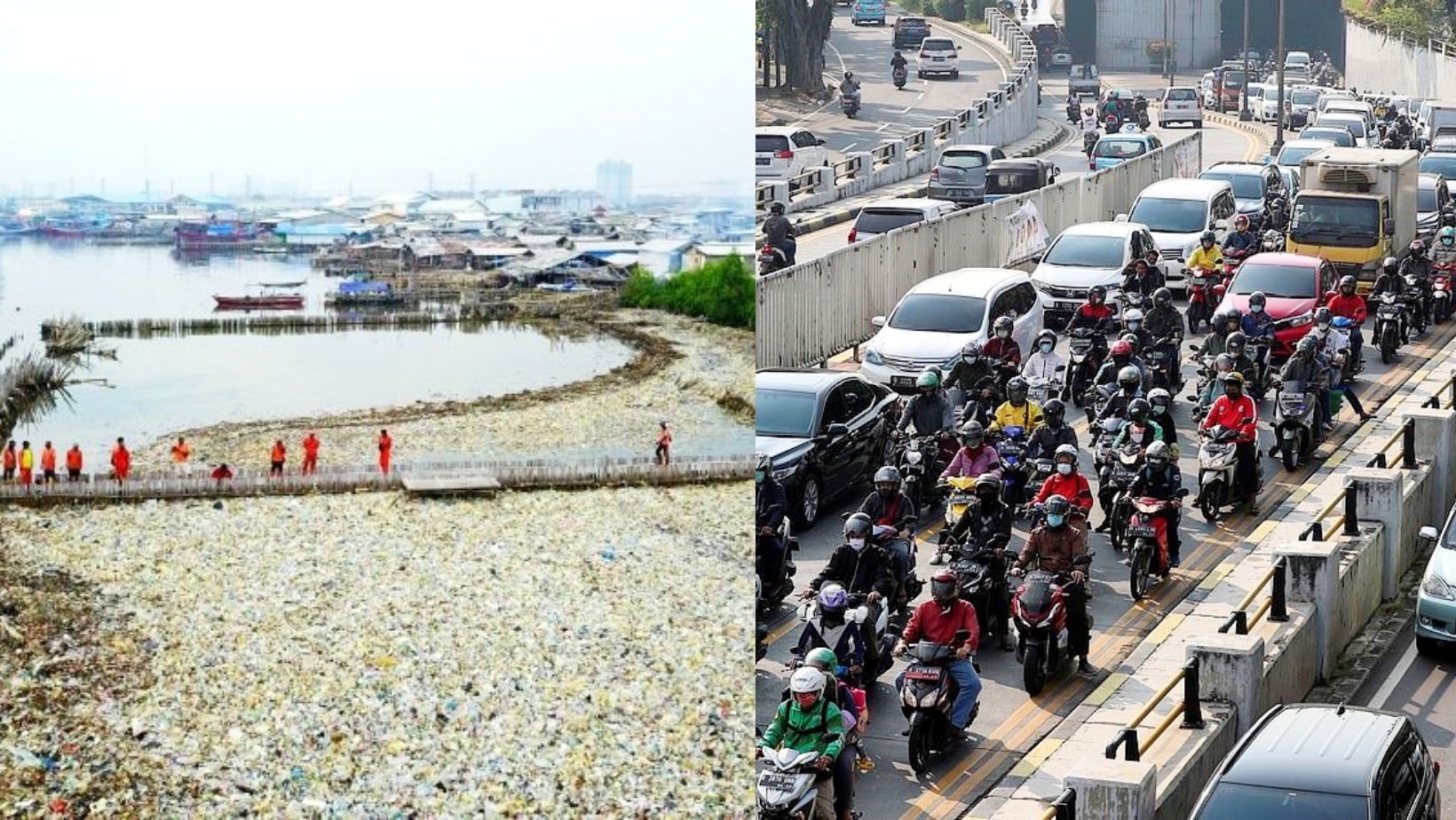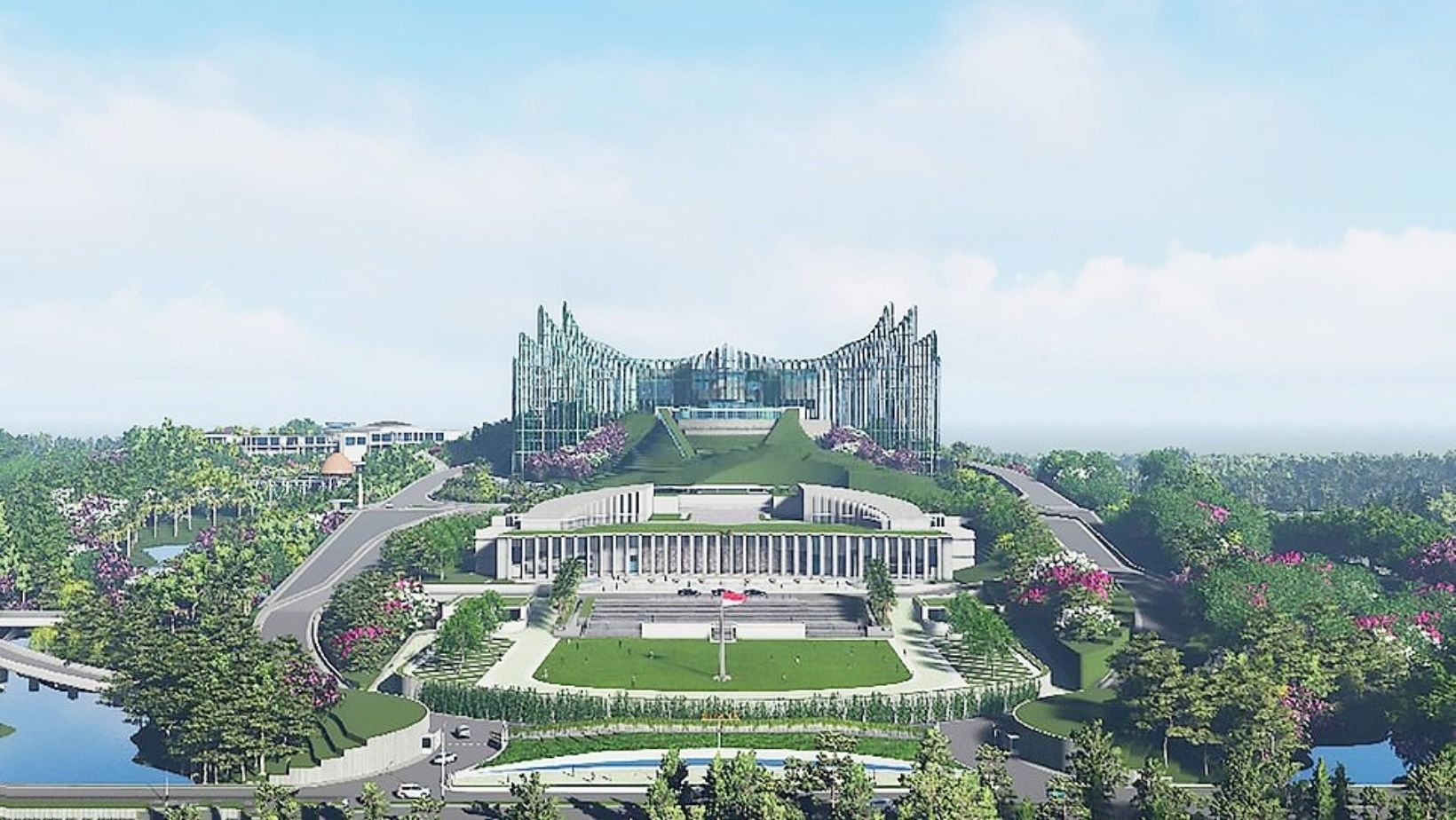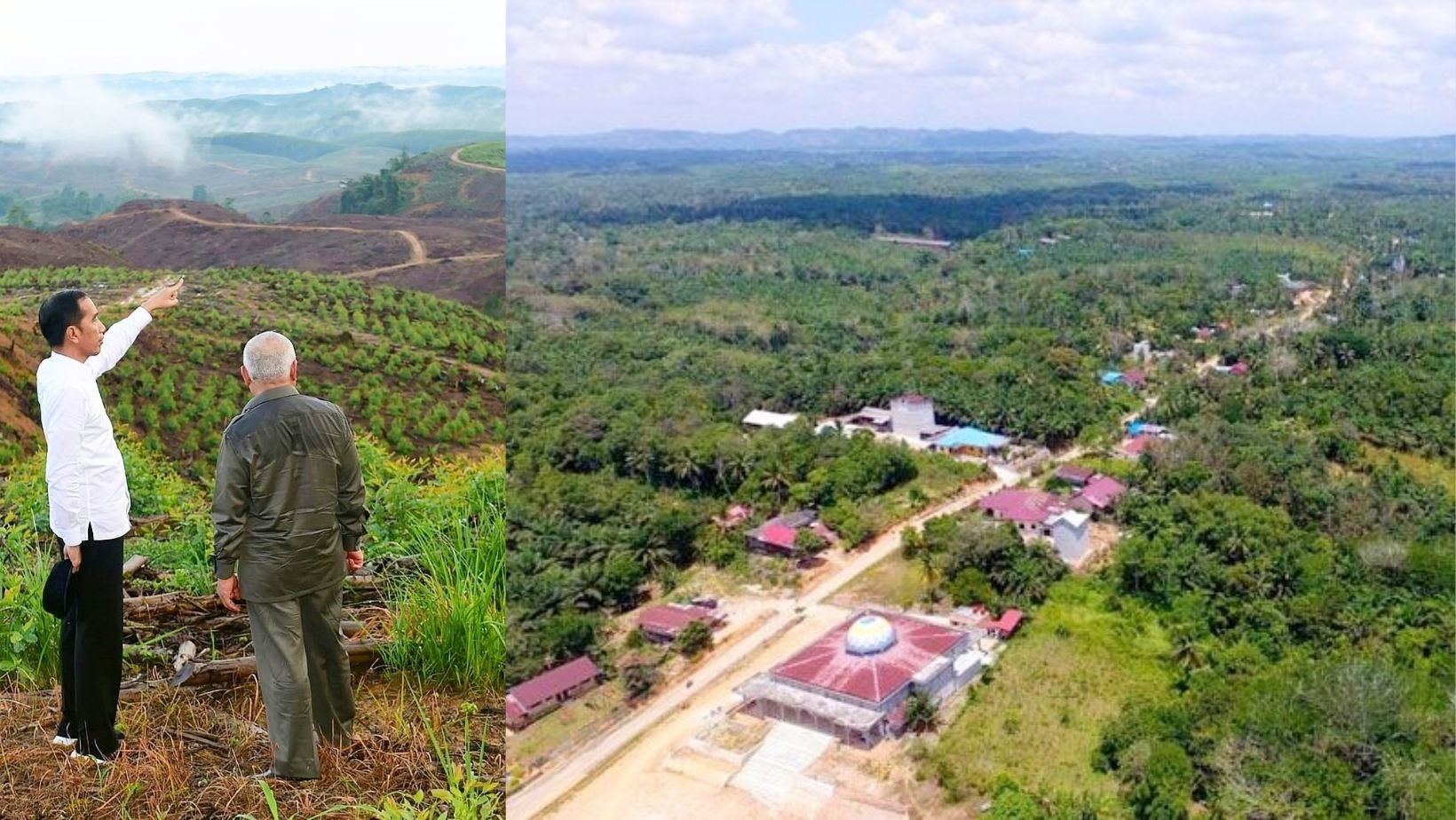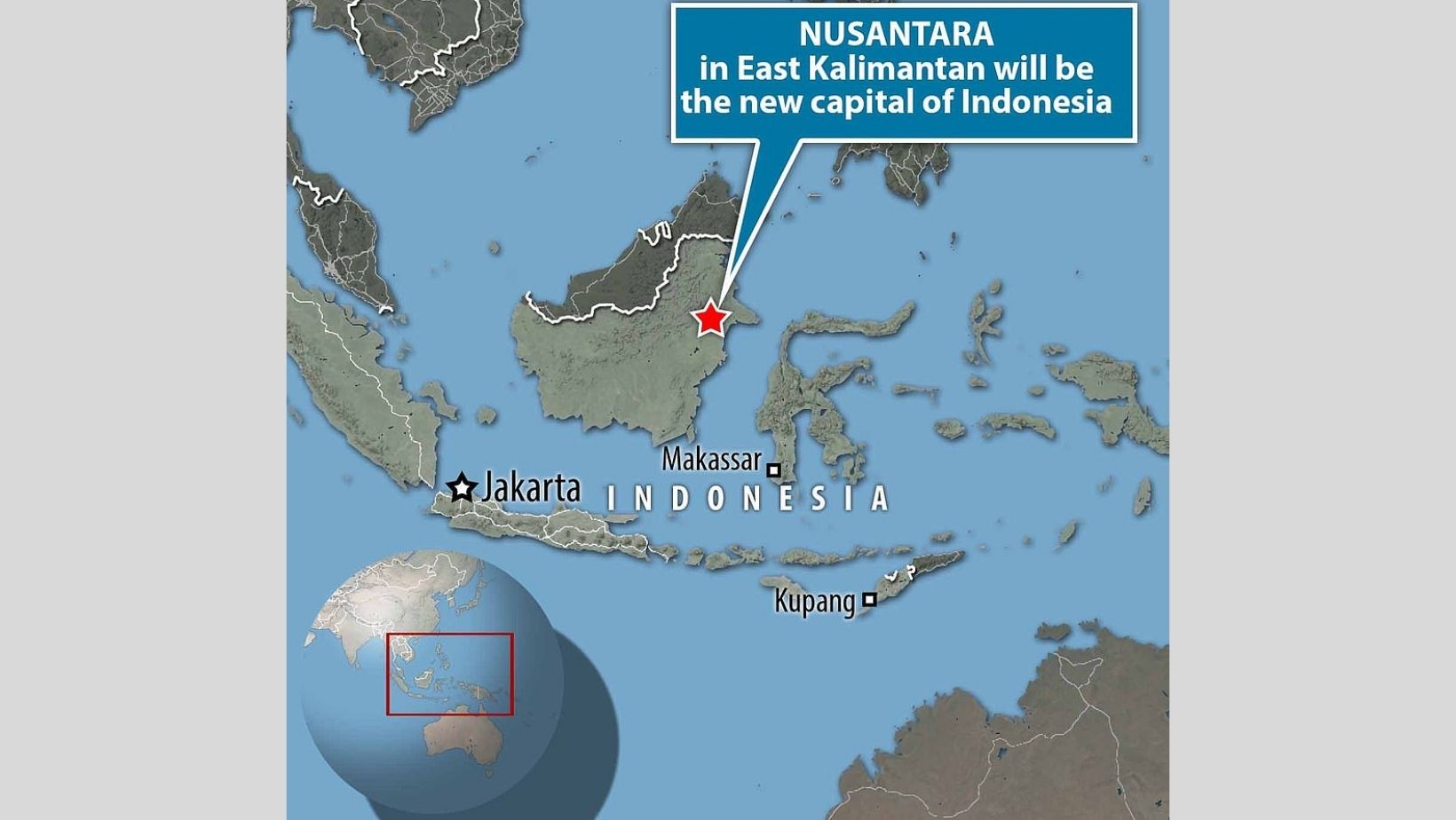Indonesia has announced that the country’s parliament approved a bill to relocate the capital from Jakarta to Kalimantan.
President Joko Widodo, also known as Jokowi, 60, first announced the plan to move Indonesia’s capital in 2019, in an effort to relieve the huge environmental challenges facing Jakarta, and to redistribute wealth. The move has been delayed due to the pandemic, but could go ahead in 2024.
Jakarta is one of the oldest cities in Southeast Asia, a port dating back more than 1,700 years. Parts of north Jakarta are falling at an estimated 25cm a year, due to subsidence including even the seawall designed as a buffer for communities.
The bill to relocate the capital was passed by approvals from eight fractions and only one fraction rejecting it, according to the chairman of Indonesia’s House of Representatives Puan Maharani. Indonesia’s Parliament comprises nine groups of political parties known as fractions.
In building a new capital in East Kalimantan, an Indonesian province on the island of Borneo, the government hopes it can take some of the pressure off Jakarta, a city of 10 million, which is notoriously congested, suffers regular flooding, and is one of the fastest sinking cities in the world due to the over-extraction of groundwater.
Known for its jungles, orangutan population, and a wide array of other wildlife, mineral-rich East Kalimantan is home to only 3.7 million people, according to the most recent census.
Skeptics worry, however, about the environmental impact of plunking a sprawling 256,000-hectare (990-square-mile) city down in Borneo’s East Kalimantan province, as well as committing $34 billion to the ambitious project amid a pandemic.
Dwi Sawung, an official with the WALHI environmental group said: “The new capital city’s strategic environmental study shows that there are at least three basic problems.
There are threats to water systems and risks of climate change, threats to flora and fauna, and threats of pollution and environmental damage.”
The name of the new capital will be Nusantara, an old Javanese term meaning “archipelago”. The budget for initial construction will be about $35 billion and it will entail constructing government buildings and housing from scratch.
Suharso Monoarfa, the nation’s development minister, said that “Nusantara”, was chosen from a list of 80 names because it was widely recognizable by Indonesians and easy to memorize.
At the current rate, it is estimated that Jakarta’s one-third of the city could be submerged by 2050. Beyond that, its air and groundwater are heavily polluted, it floods regularly and its streets are so clogged that it is estimated congestion costs the economy $4.5 billion a year.
By relocating the capital, the government also hopes to redistribute wealth. Java is home to 60% of the country’s population and more than half of its economic activity – even though Kalimantan is almost four times bigger.
Under the project, Jakarta will remain the country’s commercial and financial centre, but government administrative functions will move to East Kalimantan, about 2,000km (1,250 miles) north-east of Jakarta. The new capital will be based in the regions of North Penajam Paser and Kutai Kartanegara.
President Widodo says the presidential palace will be moved to the new capital before he completes his second term in office in 2024. Also moving at that time will be the Home Ministry, the Foreign Ministry and the Defense Ministry.
The whole relocation process is scheduled to be completed by 2045.
Sri Mulyani, Indonesia’s Minister of Finance, said in a press conference that there will be five stages of development in the new capital city.
The first stage is expected to begin in 2022 and run through 2024, with development expected to last until 2045. It will be one of the biggest infrastructure projects the Indonesian government has ever undertaken.
Indonesia is not the first country to relocate from an overpopulated capital. Brazil, Pakistan, and Nigeria have all changed theirs to newly planned and constructed cities. Malaysia has also moved its government to Putrajaya from Kuala Lumpur in 2003, while Myanmar moved its capital to Naypyidaw from Rangoon in 2006.


